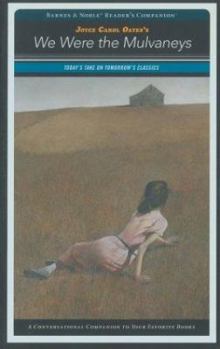Spark Notes Barnes and Noble Readers Companion: We Were the Mulvaneys
Select Format
Select Condition 
You Might Also Enjoy
Book Overview
In We Were the Mulvaneys , Joyce Carol Oates --one of the great figures in modern American fiction--explores a crisis in the life of a seemingly perfect American family...and the devastating consequences that follow. Get the most out of this enthralling novel with the help of this informative, illuminating Reader's Companion : Why do Marianne's parents banish her after she's raped? What have the Mulvaneys lost at the end of the novel? What have they gained? Why does Joyce Carol Oates consider We Were the Mulvaneys the novel closest to her heart?
Format:Paperback
Language:English
ISBN:0195140516
ISBN13:9780195140514
Release Date:October 2000
Publisher:Oxford University Press
Length:240 Pages
Weight:0.85 lbs.
Dimensions:0.6" x 6.0" x 9.0"
More by Shelley D. Minteer
Customer Reviews
2 customer ratings | 2 reviews
There are currently no reviews. Be the first to review this work.










































